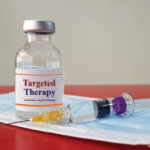EULAR 2020 e-CONGRESS—In what speakers at the European e-Congress of Rheumatology described as the first treat-to-target and tight control (T2T/TC) strategy trial in axial spondyloarthritis (AxSpA), researchers found such a strategy has both health and financial benefits. In the year-long study—called TICOSPA—centers were randomized to apply either a T2T/TC strategy or care left to the…





